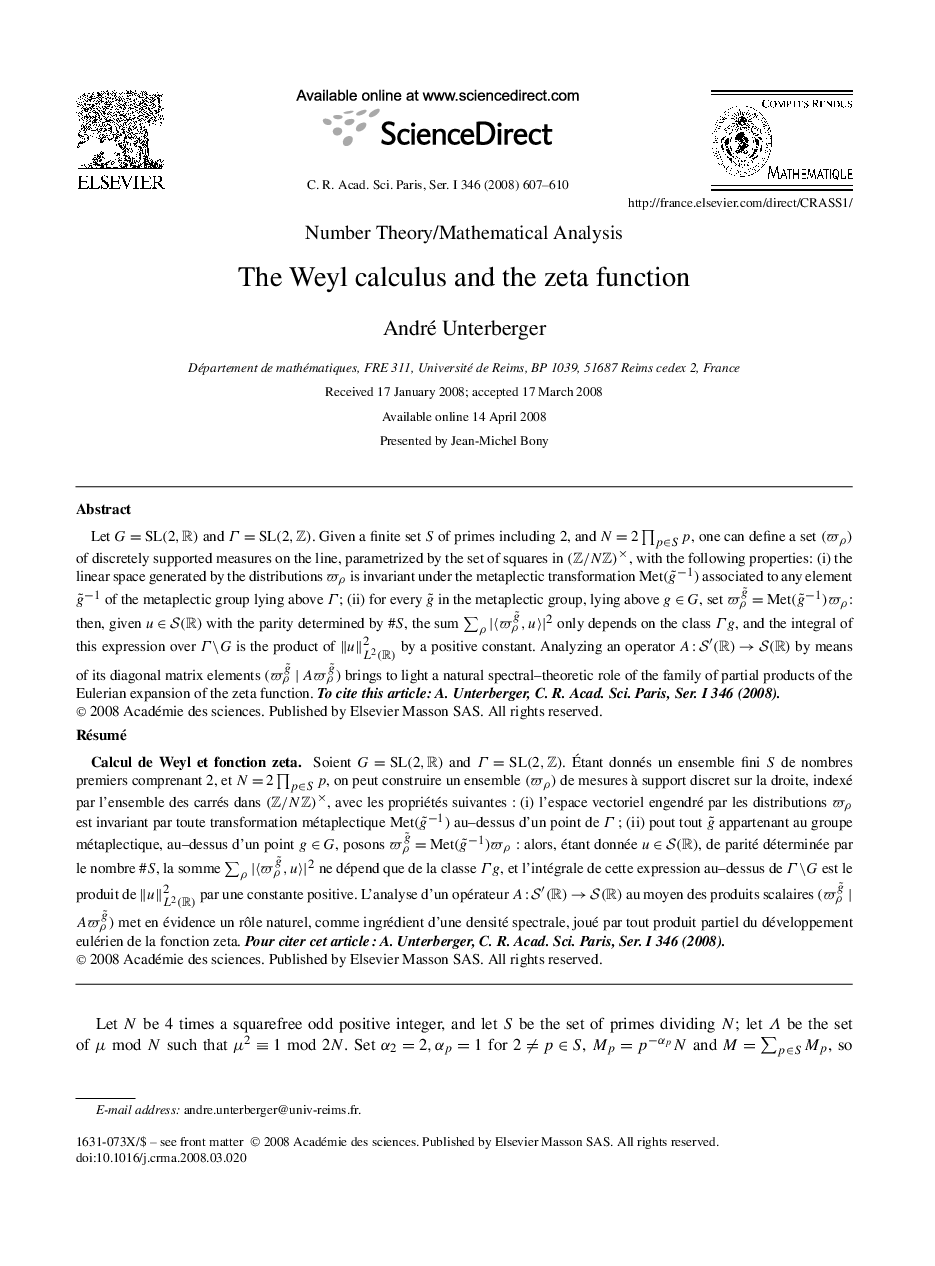| Article ID | Journal | Published Year | Pages | File Type |
|---|---|---|---|---|
| 4671672 | Comptes Rendus Mathematique | 2008 | 4 Pages |
Let G=SL(2,R) and Γ=SL(2,Z). Given a finite set S of primes including 2, and N=2∏p∈Sp, one can define a set (ϖρ) of discretely supported measures on the line, parametrized by the set of squares in ×(Z/NZ), with the following properties: (i) the linear space generated by the distributions ϖρ is invariant under the metaplectic transformation associated to any element of the metaplectic group lying above Γ; (ii) for every in the metaplectic group, lying above g∈G, set : then, given u∈S(R) with the parity determined by #S, the sum only depends on the class Γg, and the integral of this expression over Γ\G is the product of by a positive constant. Analyzing an operator by means of its diagonal matrix elements brings to light a natural spectral–theoretic role of the family of partial products of the Eulerian expansion of the zeta function. To cite this article: A. Unterberger, C. R. Acad. Sci. Paris, Ser. I 346 (2008).
RésuméSoient G=SL(2,R) and Γ=SL(2,Z). Étant donnés un ensemble fini S de nombres premiers comprenant 2, et N=2∏p∈Sp, on peut construire un ensemble (ϖρ) de mesures à support discret sur la droite, indexé par l'ensemble des carrés dans ×(Z/NZ), avec les propriétés suivantes : (i) l'espace vectoriel engendré par les distributions ϖρ est invariant par toute transformation métaplectique au–dessus d'un point de Γ ; (ii) pout tout appartenant au groupe métaplectique, au–dessus d'un point g∈G, posons : alors, étant donnée u∈S(R), de parité déterminée par le nombre #S, la somme ne dépend que de la classe Γg, et l'intégrale de cette expression au–dessus de Γ\G est le produit de par une constante positive. L'analyse d'un opérateur au moyen des produits scalaires met en évidence un rôle naturel, comme ingrédient d'une densité spectrale, joué par tout produit partiel du développement eulérien de la fonction zeta. Pour citer cet article : A. Unterberger, C. R. Acad. Sci. Paris, Ser. I 346 (2008).
